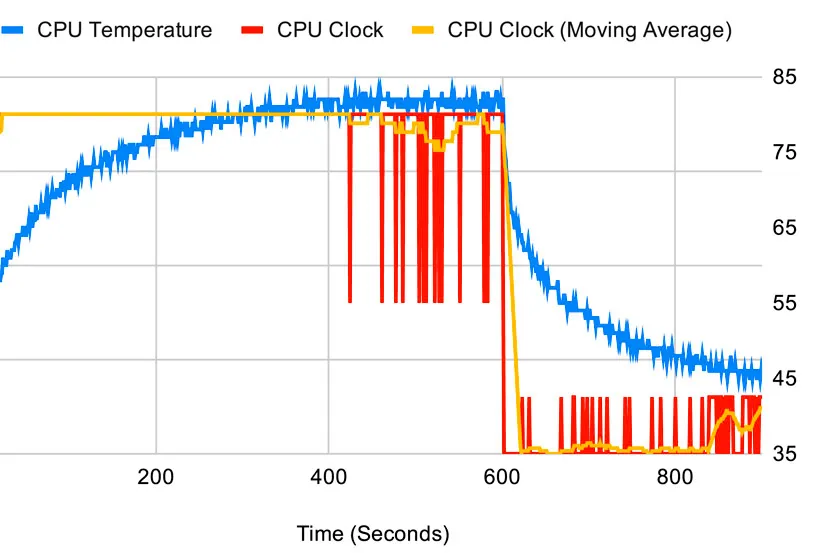2026’s Biggest Tech Trend Isn’t a New Gadget


In the quest for high performance, many businesses invest in powerful laptops equipped with Intel ( Generally Core i7 and high end AMD processors) and AMD CPUs. These machines promise superior speed and multitasking capabilities, making them attractive for business users who require robust performance for demanding applications. However, despite their advertised prowess, these laptops often encounter a significant issue: overheating and thermal throttling.
Thermal throttling is designed to prevent a laptop’s internal components from overheating. When the CPU temperature reaches a critical level, the system reduces the processor’s speed to lower the heat generation, protecting the hardware from damage. While this is an essential safety feature, it can drastically impact performance, leading to slower processing speeds without any clear indication to the user.
In the image below, after heat builds up in the system, and the CPU reaches a specific temperature (at the 600-second mark), the system limits the CPU, resulting in a drop in heat and processing power.

Many modern laptops are housed in sleek, compact designs that prioritise aesthetics and portability. However, these designs often come at the cost of adequate cooling solutions. Limited space for airflow and smaller cooling fans can struggle to dissipate the heat generated by high-performance processors, especially during intensive tasks such as data analysis, video editing, or running multiple applications simultaneously.
Over the past four years, the shift towards remote work, driven by the COVID-19 pandemic, has further amplified this issue. Many businesses transitioned from desktop setups to laptops to facilitate remote work. The demand for powerful, portable computing devices surged as employees needed machines capable of handling complex tasks from home. This rapid transition often led to choices prioritising power and portability over adequate thermal management.
These examples have been picked at random. This problem is generally universal.
To mitigate the impact of overheating and thermal throttling, consider the following practical solutions:
While more powerful laptops offer impressive performance capabilities, their potential to overheat and thermally throttle can undermine the very advantages they promise. This issue has become more pronounced recently as businesses have increasingly relied on laptops for remote work during and after the COVID-19 pandemic. For tailored advice and solutions, consider reaching out to our procurement team, who can guide you in selecting and maintaining the best technology for your needs.